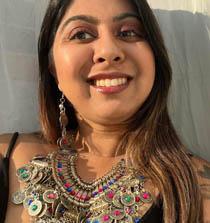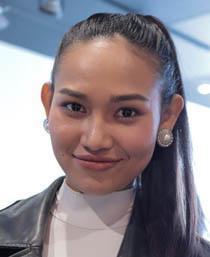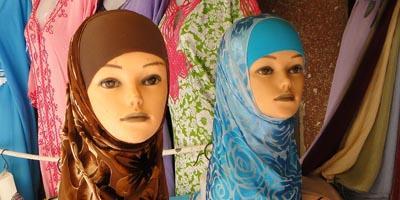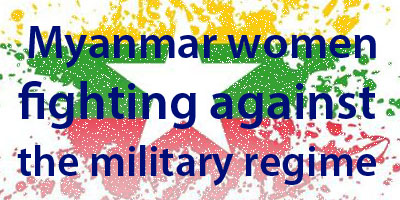Listen to the companion podcast here
Female political activism is on the rise in authoritarian Myanmar, despite the extreme adversity of the repressive military regime. Women from diverse backgrounds in Myanmar are fighting for change with unwavering courage despite the risk of being prosecuted by the military junta.
To uncover the source of determination behind their remarkable efforts, I had the privilege of speaking with four female activists from Myanmar:
- Evelyn (a pseudonym), a student activist for democracy who participated in the Civil Disobedience Movement (CDM).
- Karima S. Jaffer, a mixed Burmese woman who was born and raised in Canada and a dedicated promoter of Myanmar culture;
- Han Lay, a Burmese beauty pageant titleholder, model, and activist;
- A political science professor from Myanmar, now teaching at a university in North America, who did not want to be identified.
Here are their stories:
Evelyn
Student politics in Myanmar plays an important role in shaping the country’s cause of democracy. The 8888 Uprising, a series of nationwide protests that demanded the end of totalitarianism and a multiparty democracy to be installed in Burma, began as a student movement. Although the 8888 Uprising was brutally suppressed by the military coup, the legacy of this uprising set the foundation for the country’s democratic transition before the military coup in 2020.
Growing up in a family that is passionate about politics, Evelyn believes that she, as part of the new generation of successor student politics, has a responsibility to defend the cause of democracy. She told me that, “I got involved in CDM and then as I’m a student representative, I attended a meeting with my seniors and other student representatives of the other major. And then we collected the data and we persuaded students to be involved in the CDM movement.”

According to data collected by Evelyn, 97% of the students and 73% of the teachers from her school participated in the CDM. To provide financial support for the protests, Evelyn contacted connections from other countries and gathered and donated funds secretly. However, as the situation worsened, Evelyn’s identity as a donor became a threat to her safety and she was forced to leave her hometown.
Despite the challenges, she remained in contact with the student union and continued to contribute financially to their cause. She was constantly inspired by female role models who emerged from the country’s checkered path to democracy, including a former Miss Universe Myanmar who took part in the protests, the national heroine, Aung San Suu Kyi, and even her auntie, who joined the People’s Defence Force and attended training in the forest in preparation to defend the civilians. She encouraged students who were hesitant about joining the CDM, saying, “Women who have big success and who are so beautiful have to sacrifice their lives for democracy. So why are you still waiting here? Why are you not involved?”
Karima S. Jaffer

Growing up in Canada as a mixed Burmese woman, Karima S. Jaffer embarked on a journey to reconnect with her Burmese roots. During years exploring her identity, she was amazed by the multifaceted dynamics of Myanmar’s culture and is now committed to promoting that rich heritage in Canadian society. “I’ve been doing a lot of advocacy [including] speaking to professors at my faculty to see how they organize in an ethical manner and how to get the word across.”
However, Jaffer sees that the Myanmar culture she promotes is being eroded by the military government: “Burma was known for really high literacy, good education, and being very kind and loving towards folks. But now we see those ethics and values being tarnished, and Buddhism used as a way to suppress human rights and attack ethnic minorities. It is very disappointing that the government is taking the toxic masculine approach to create fear culture.”
Jaffer also raises crucial questions about the gender dynamics and stereotypes that persist in Myanmar’s political landscape. The Burmese women she met, even those who live in Western society and have more choices in their lives, often act timid, humble and even deferential to their male counterparts. Jaffer believes this is the product of both social norms and the struggle left by the colonial past. She hopes that while the female activism is thriving within Myanmar, Burmese women living in Western society can also be empowered and gain a place in the political arena.
Han Lay

The glamour associated with the appeal of physical attractiveness promoted by beauty pageants often brings the question of whether women should be judged only by their appearance. Han Lay, a former beauty pageant titleholder, proved this perception wrong, as she has emerged as a fearless pro-democracy activist using her platform to bring attention to the political crisis in her homeland, Myanmar.
Han Lay’s activism began when she was young, and rebelled against the traditional role of women. She felt that women should not be restricted to traditional roles, like take caring of the house and cooking for their husbands. When the military coup happened in 2021, even though she grew up in an apolitical environment, She realized it was time to speak up, and the title of beauty queen gave her a platform that could help her effectively reach out to people overseas. During a beauty pageant in Thailand, she gave an impassioned speech pleading for urgent international help for her country, which went viral on the internet.
Her actions brought threats of death penalty for a charge of high treason from the military. Han Lay had to flee to Thailand, and then to Canada, to connect with the international media and spread the word about the dire situation back home. In her campaigns, she continued calling for help from international community to support the young generation that continues to live in the jungle fighting the military. She also told me that there are many people in the entertainment industry who have devoted themselves to political activism. However, given the precarious situation at home, they all have to start their campaigns in foreign countries.
The Professor
The contribution of female activism in academia also cannot be overlooked. A political science professor teaching at a university in North America, who did not want to be identified, spoke with me about the issue of gender inequality in Myanmar, and how women have been making remarkable contributions to the struggle for democracy during the coup despite the stereotypes and challenges.
According to the professor, women experience different levels of discrimination in Myanmar: “Women from urban areas and higher socioeconomic classes tend to enjoy more privileges than their counterparts in rural areas. Overall, however, there has been official discrimination against women in civil service and higher education. Although we do not have statistics, women suffer gender-based violence and discrimination at home and work (in terms of salary and promotion), and do a disproportionate share of housework.”
Even so, since young men are more likely to join the resistance movement and it has become riskier for them to go out, more women now have to engage in income-generating activities, creating many female-led households.
The professor thinks female political activism had begun to develop before the military coup: “There were already many prominent women figures in politics, higher education, business, and NGOs. The percentage of women who are in elected positions is still small, but Myanmar women activists have historically enjoyed a high level of independence and they can be as fierce and resourceful as their male counterparts. I think 80% of my local researchers now are women.”
Regarding her own approach to activism, the professor is dedicated to bringing fresh perspectives that exist beyond the boundaries of Euro- or American-centric theories. Through the process of questioning existing theories, reconstructing new theories that better reflect reality, and educating the new generation about the importance of inclusiveness and diversity, she is optimistic that, in the future, more and more female scholars with a minority background like her will make their voices heard in academia.
In sum, while challenges persist in achieving gender parity in political participation, these four female activists, coming from different backgrounds, are examples of how women have more resources and power than may be perceived.

